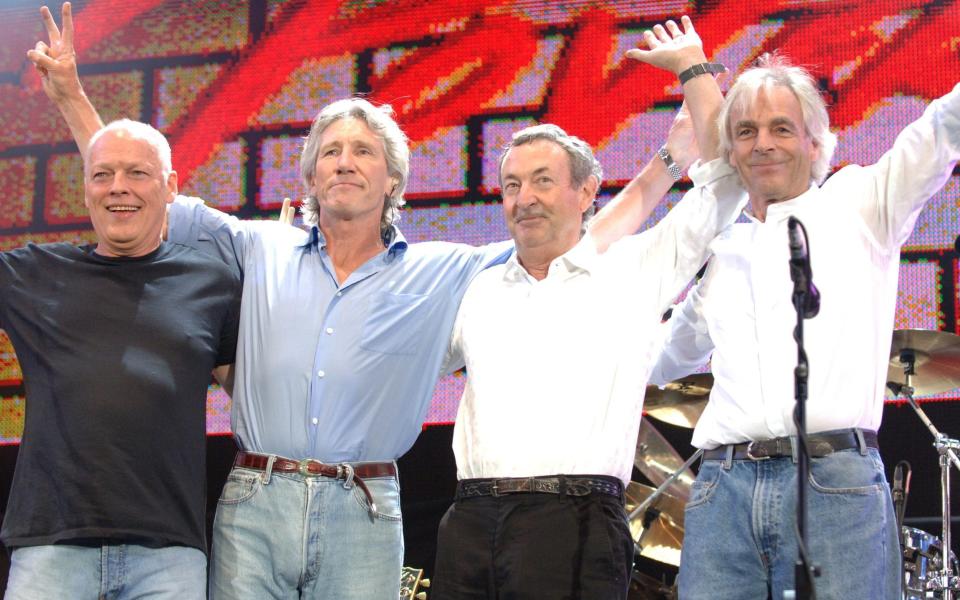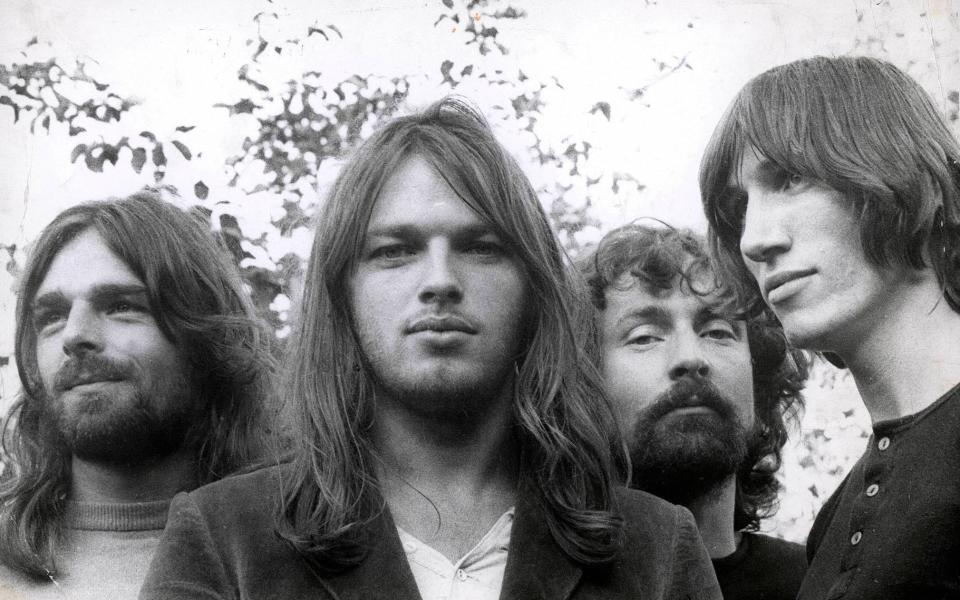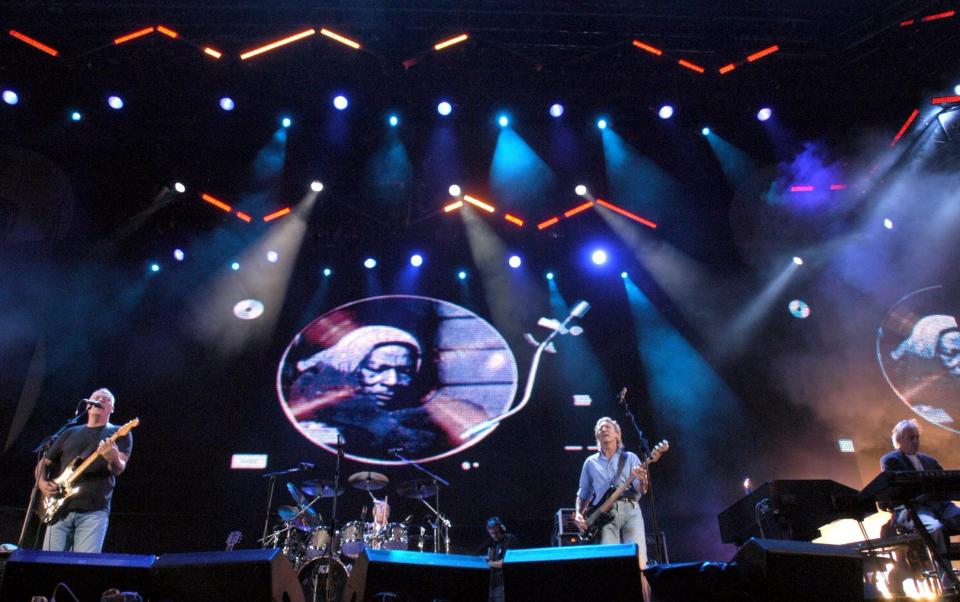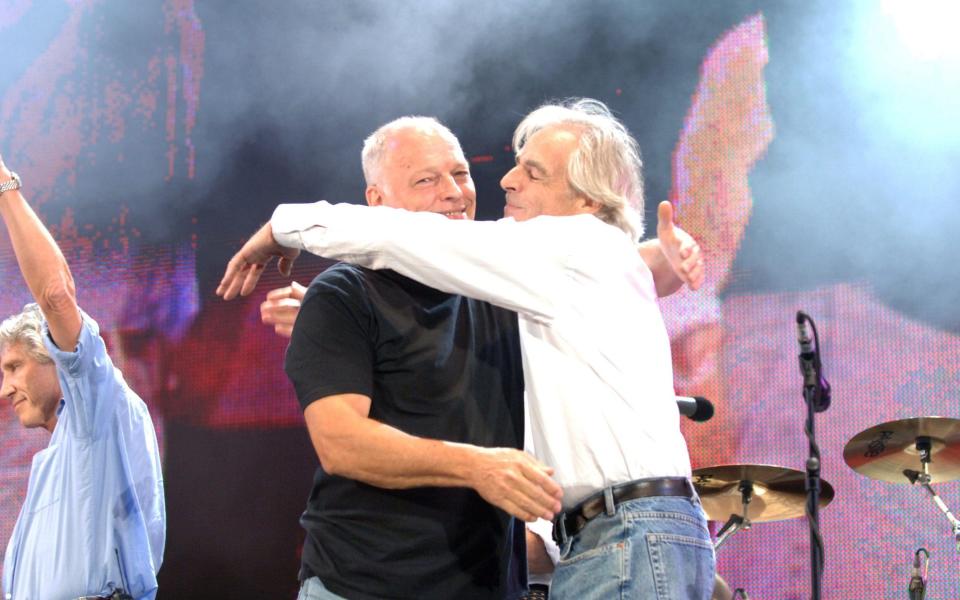Wish you were here? The Pink Floyd reunion that never was

In the spring of 2005, Roger Waters did something extraordinary. He picked up the phone and called his old friend and former Pink Floyd band-mate David Gilmour.
“Dave was a bit surprised when the phone rang and it was me,” Waters would recall. For a musician synonymous with bombast and concept-album grandiosity it was a rare moment of understatement.
Waters was ringing at the behest of Bob Geldof, who wanted Pink Floyd to reform for a one-off performance at his Live 8 charity show in London. As Geldof had hoped, and Waters hadn’t dared believe, Gilmour was up for a reunion – though not so up for it that he didn’t leave Waters stewing 24 hours before answering in the affirmative.
Gilmour and Waters had not shared a stage with Gilmour in some 20 years. And Pink Floyd’s 23 minute, five-song set at Hyde Park that July was a coming-together to savour. From the dystopian sampled heart-beat with which the set opened to Gilmour’s volcanic solo at the conclusion of Comfortably Numb, Floyd, without a hint of rustiness, were punching through a performance for the ages. To the 205,000 watching in Hyde Park, and the millions tuning in around the world, it felt like the start of a new chapter.
What it was, in fact, was the sound of a door slamming definitely. It was the end of something rather than the beginning. For all the surface-level amiability, Waters and Gilmour never really reconciled. And their rift feels as wide as ever this week, as Gilmour resuscitates Pink Floyd for a new Ukraine protest song, Hey, Hey, Rise Up!
Waters and Gilmour have argued about almost everything since their big bust-up over the recording of Comfortably Numb in 1979 – a nine month saga which Gilmour described as “the last embers of mine and Roger's ability to work collaboratively together”. And so it is no surprise they should disagree about Ukraine. Gilmour, who has a Ukrainian daughter-in-law and grandchildren, has, quite reasonably, characterised Putin’s war as a “crazy, unjust attack”.
Waters has taken a different line. Seven days before Moscow’s tanks rolled across the border, he told Russia Today talk of invasion was “bulls___... anybody with an IQ above room temperature knows [an invasion] is nonsense”.
He did subsequently call the attack the “act of a gangster” while, in the same breath, condemning “propaganda to demonise Russia”. Gilmour, it is fair to state, was not impressed. “Let’s just say I was disappointed and let’s move on,” he told the Guardian. “Read into that what you will.”
The tension between the two was palpable even at Live 8. As Comfortably Numb shudders to a stand-still, Gilmour prepares to leave stage. But then Waters bounds over and puts his arms around him, drummer Nick Mason and keyboardist Richard Wright. Waters is full of ebullience – Gilmour less so and moves closer to Mason (who plays with him on the new Ukraine song). Waters leaves the stage alone.

A “one off” charity gig can be catalysing for a group that has fallen out of love with music and who are thoroughly fed up with each other. Suede, for instance, reconvened on a permanent basis (and arguably released their strongest work) after reforming for a fundraiser in 2010.
Live 8, though, did little to heal the divide between Rogers and Waters. If anything it may have widened it. This became clear when footage emerged in 2006 of the two artists rehearsing in adjoining rooms at Bray Studios in Windsor. That both should find themselves at the complex at the same time was completely coincidental but when they met in the carpark, the awkwardness was palpable. It was as if each wanted a hole to open and swallow them (or, possibly, the person opposite).
Waters and Gilmour had been through a great deal before the severing of their friendship in the Eighties. Perhaps that is why the falling-apart stung so much. They’d overcome the loss to drug addiction and mental illness of Pink Floyd’s original frontman, Syd Barrett. And they’d both come through the challenges of mega-stardom in the Seventies – a whirlwind of success and excess to which neither of these bookish individuals was especially suited (Comfortably Numb being about the alienation of fame).

And yet, after all that, their relationship still ran aground. The catalyst was Waters’s decision in 1983 to leave Pink Floyd. It wasn’t the first time the band had lost their lead singer – the same had, after all, happened with Syd Barrett. Yet such was Waters’s ego he found it unthinkable Pink Floyd could continue without him – and took it for granted his bandmates would feel likewise.
Gilmour, Mason and Wright, however, saw no reason not to soldier on. And when they signalled their intention to record and tour as Pink Floyd, Waters took them to court. “I was wrong,” he told the BBC in 2013. “Who cares?”
The answer is that Gilmour cared. And, two decades on, at Live 8, it was clear his feelings about Waters hadn’t softened appreciably. “It’s been a long time since we all played together,” he told a camera crew that popped around for the Live 8 rehearsals. “How is it going to work? Which way is it going to go?” added Mason, always on Team Dave when it came to their differences with Waters.
“It’s a bit strange,” said keyboard player Richard Wright (who passed away in 2008). “It’s going to be strange playing with Roger for this one show.”
Gilmour’s logic for the gig was that, with time moving on, he might come to rue passing up the opportunity to share the stage with Waters. “I thought I would probably regret it if I didn’t do this one off date,” he said. “[And] give the chance for some of my children to see what I used to do.”

Despite a tussle over the set list (Gilmour refused to play Another Brick In The Wall), he and Waters did not butt heads at Hyde Park. In fact, it was extraordinary to witness how much of their old chemistry endured. But nor were they schmoozing it up like best pals. And it’s hard not to conclude that all those days spent rehearsing together had served as a reminder why they’d fallen apart in the first place.
That the chill endured was clear after Live 8 (though Gilmour occasionally guested when Waters subsequently went on the road with Floyd’s The Wall). The band were reportedly offered £136 million to reform and tour the US. The two former friends rushed to distance themselves from the proposal.
“The [Live 8] rehearsals convinced me [that] it wasn't something I wanted to be doing a lot of,” said Gilmour. “There have been all sorts of farewell moments in people's lives and careers which they have then rescinded, but I think I can fairly categorically say that there won't be a tour or an album again that I take part in.”
Waters was no less firm. “I don’t really need it,” he said. “It would be a very hot ticket. I didn’t mind rolling over for one day out. I couldn't roll over for a whole f______ tour.”.
And that was that – a band reunion that never was, and a torturous glimpse of what an older, craggier Pink Floyd could have been if only Gilmour and Waters had found a way to get along.

 Yahoo News
Yahoo News 